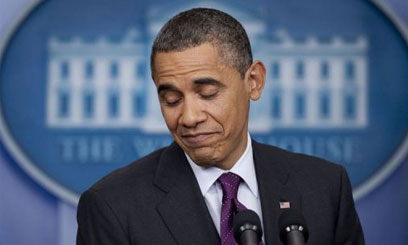 WASHINGTON, Mar 23 – The United States remained tightlipped about its choice to lead the World Bank on Thursday, the eve of the deadline for nominations for the next president of the huge development lender.
WASHINGTON, Mar 23 – The United States remained tightlipped about its choice to lead the World Bank on Thursday, the eve of the deadline for nominations for the next president of the huge development lender.
The emergence of strong candidates from developing countries has the Obama administration scrambling to come up with a heavy-hitter from the United States, which traditionally chooses the head of the World Bank, a person close to the situation said.
A little more than 24 hours before nominations close at the end of the business day Friday, the White House said it had no timing on a US nomination.
“I have no news to make on the World Bank front,” White House spokesman Jay Carney said.
Secretary of State Hillary Clinton shot to the top of the rumor mill filling the news vacuum after a former Colombian finance minister and central bank chief, Jose Antonio Ocampo, announced his candidacy Wednesday.
Ocampo, currently a Columbia University professor, also said that Nigerian Finance Minister Ngozi Okonjo-Iweala was a candidate.
But a spokesman for Okonjo-Iweala said that the former top-level World Bank official “is not seeking it.”
However, he told AFP, “there seems to be some serious enthusiasm for the idea.”
A person close to the World Bank confirmed that, saying Okonjo-Iweala’s name is “making the rounds” and was expected to be proposed by South Africa.
“It’s an extremely serious candidacy: she is a woman, black, minister of finance and is a well-known person at the World Bank,” where she was managing director from 2007 to 2011, the person said.
“That puts enormous pressure on the US side,” the source said. “They’re going to have to propose a high-profile candidate.”
Under a tacit agreement since the World Bank and its sister institution the International Monetary Fund were founded nearly 70 years ago, the United States always selects an American as World Bank president and Europe puts a European at the IMF helm.
That traditional arrangement governing the two 187-nation institutions has triggered outrage from developing and emerging economies seeking greater representation to reflect their rising contributions to the global economy.
The race to lead the World Bank was set in motion after president Robert Zoellick announced on February 15 he was stepping down at the end of his term on June 30.
The US Treasury that same day declared “the United States continues its leadership role in the World Bank,” as the largest shareholder, and would announce its candidate “in the coming weeks.”
Since then, the Treasury has declined to comment on the nomination process.
Clinton has long been among the most circulated names rumored to be under consideration by President Barack Obama, along with UN ambassador Susan Rice, Democratic Senator John Kerry and former Treasury secretary Larry Summers.
Though Clinton repeatedly has insisted she is not interested in the job, it is highly possible that she may give in to White House pressure, the source said.
If not, “Rice’s prospects seem the strongest,” the source said, and “Summers hasn’t been totally ruled out.”
Another American, economist Jeffrey Sachs, has garnered support for his self-declared candidacy in small developing countries.
Sachs, the director of the Earth Institute at Columbia University, has a decades-long career in development and poverty eradication and headed the United Nations’s Millennium Development Goals project.
A candidate must be presented by the Bank’s 25 executive directors, or by governors through the director representing them on the executive board.
The World Bank said that if there are more than three candidates, it will release a short list of three candidates but did not indicate the timing of the publication.


































